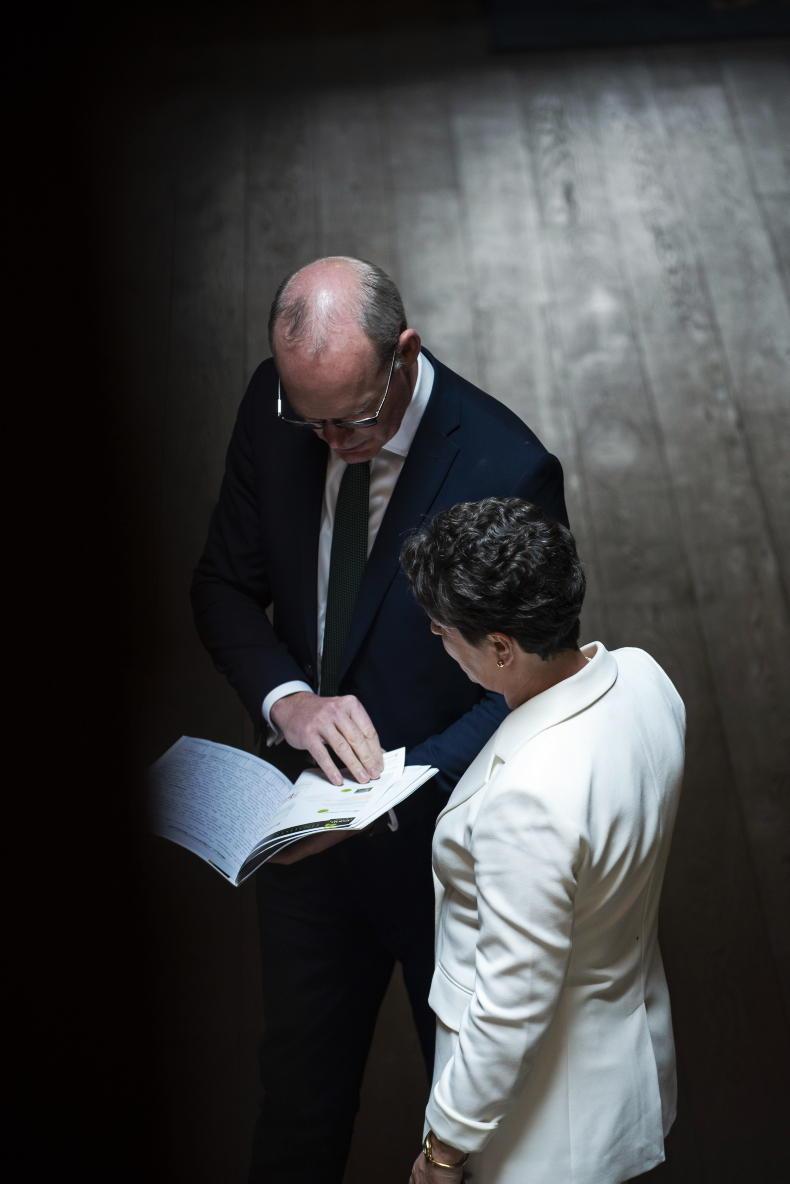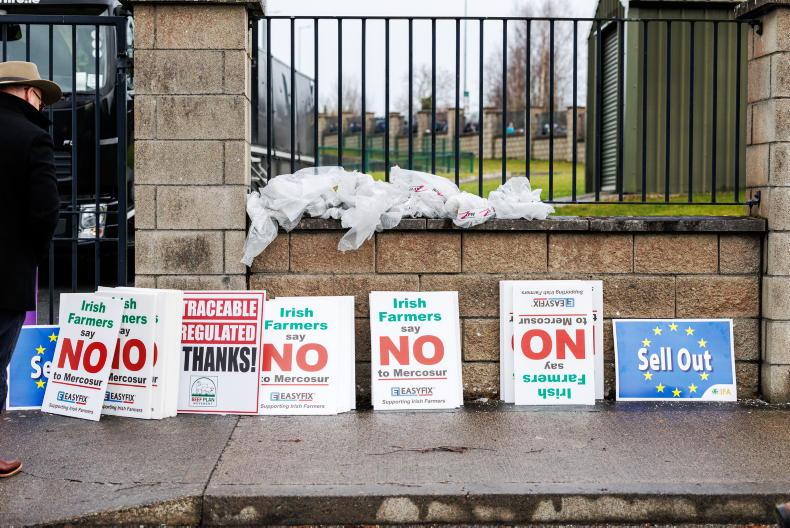Long before Katy Perry jumped around her oversized doll house dressed as a three-tier pink cake to advertise food delivery service “Just Eat”, there was “Just Ask”.
This was a Bord Bia awareness campaign that aimed to encourage consumers to look for provenance information in hospitality outlets. By just asking, it was envisaged that chefs would be encouraged to provide this information on their menus with the knock-on effect that they would buy more Irish-produced primary products, particularly meat.
“Just Ask” supervened the voluntary scheme - Féile Bia. This was the organisation’s flagship food service promotion vehicle from 2001 until it’s not fully welcome demise in 2009. At its peak, the scheme had 1500 member hotels, restaurants and pubs signed up to source Quality Assured (and therefore Irish) meat and eggs. At its simplest, it sounded great but the undertone of course was - what about everything else?
The “full Irish” breakfast, as Margaret points out in backchat this week, is often where establishments fall down. Sourcing from only Irish suppliers, although possible, is complicated. There is seasonality, price, depleting producer diversity and customers who don’t ask and possibly don’t care. All are influential for procurement in what are tight-margin businesses. The ultimate goal of both of these programmes was to encourage chefs to buy and use Irish farm inputs and for consumers to seek this out, put a value on it and frequent these establishments more often.
This is a lofty aim that is ever more relevant, according to Minister for Enterprise, Trade and Employment Simon Coveney. At the recent Good Food Ireland (GFI) awards, the Minister doubled down on his recent comments on agriculture versus Foreign Direct Investment (FDI).

At the Good Food Ireland awards, 2023 Minister Simon Coveney T.D. commented that “These sectors (agri-food and tourism) together are the most important drivers in the Irish economy, much more important than FDI investment in terms of sustainability and permanence.”
“These sectors (agri-food and tourism) together are the most important drivers in the Irish economy, much more important than FDI investment in terms of sustainability and permanence.” He pointed to both the image created by Irish food in the “mind’s eye” of tourists as well as the hard-core numbers for the economy. “How do we sustain this extraordinary [food and drink] growth story that last year was responsible for an export value of almost €17 billion and a tourism industry worth €11 billion to the Irish economy each year?” He went on to say that recognising excellence is important because there are 180,000 people employed in the food sector in Ireland (across a broad spectrum of different skill sets) and 250,000 more in hospitality and tourism. Combining the two together, while allowing for some crossover, that is up to 18% of all employment in Ireland. I think that makes it worth just asking the question.
Kids don’t understand seasonality
A recent Sunday lunch came to mind when reading parenting on fussy eaters. The restaurant chosen had unquestionable provenance credentials, seasonal, short-chain, home-grown veg and locally sourced meat.
What they did not have however was tomato ketchup, it not being tomato season in early March. A sausage sandwich got cold on a plate. My kids are not very fussy, but if I am honest, I doubt even homemade ketchup (without a 25% sugar content) would have been received any better than the beetroot alternative offered.
The waste and still hungry child certainly took the impetus to return away. There is a lot to be said for buying healthy and local when you are out, but there is also a lot to be said for kids clearing their plates and food not going in the dustbin. As I said - it’s complicated.
Read more
Editorial: here we go again - ‘have you any holidays booked yet?’
The protracted nature of grief
Long before Katy Perry jumped around her oversized doll house dressed as a three-tier pink cake to advertise food delivery service “Just Eat”, there was “Just Ask”.
This was a Bord Bia awareness campaign that aimed to encourage consumers to look for provenance information in hospitality outlets. By just asking, it was envisaged that chefs would be encouraged to provide this information on their menus with the knock-on effect that they would buy more Irish-produced primary products, particularly meat.
“Just Ask” supervened the voluntary scheme - Féile Bia. This was the organisation’s flagship food service promotion vehicle from 2001 until it’s not fully welcome demise in 2009. At its peak, the scheme had 1500 member hotels, restaurants and pubs signed up to source Quality Assured (and therefore Irish) meat and eggs. At its simplest, it sounded great but the undertone of course was - what about everything else?
The “full Irish” breakfast, as Margaret points out in backchat this week, is often where establishments fall down. Sourcing from only Irish suppliers, although possible, is complicated. There is seasonality, price, depleting producer diversity and customers who don’t ask and possibly don’t care. All are influential for procurement in what are tight-margin businesses. The ultimate goal of both of these programmes was to encourage chefs to buy and use Irish farm inputs and for consumers to seek this out, put a value on it and frequent these establishments more often.
This is a lofty aim that is ever more relevant, according to Minister for Enterprise, Trade and Employment Simon Coveney. At the recent Good Food Ireland (GFI) awards, the Minister doubled down on his recent comments on agriculture versus Foreign Direct Investment (FDI).

At the Good Food Ireland awards, 2023 Minister Simon Coveney T.D. commented that “These sectors (agri-food and tourism) together are the most important drivers in the Irish economy, much more important than FDI investment in terms of sustainability and permanence.”
“These sectors (agri-food and tourism) together are the most important drivers in the Irish economy, much more important than FDI investment in terms of sustainability and permanence.” He pointed to both the image created by Irish food in the “mind’s eye” of tourists as well as the hard-core numbers for the economy. “How do we sustain this extraordinary [food and drink] growth story that last year was responsible for an export value of almost €17 billion and a tourism industry worth €11 billion to the Irish economy each year?” He went on to say that recognising excellence is important because there are 180,000 people employed in the food sector in Ireland (across a broad spectrum of different skill sets) and 250,000 more in hospitality and tourism. Combining the two together, while allowing for some crossover, that is up to 18% of all employment in Ireland. I think that makes it worth just asking the question.
Kids don’t understand seasonality
A recent Sunday lunch came to mind when reading parenting on fussy eaters. The restaurant chosen had unquestionable provenance credentials, seasonal, short-chain, home-grown veg and locally sourced meat.
What they did not have however was tomato ketchup, it not being tomato season in early March. A sausage sandwich got cold on a plate. My kids are not very fussy, but if I am honest, I doubt even homemade ketchup (without a 25% sugar content) would have been received any better than the beetroot alternative offered.
The waste and still hungry child certainly took the impetus to return away. There is a lot to be said for buying healthy and local when you are out, but there is also a lot to be said for kids clearing their plates and food not going in the dustbin. As I said - it’s complicated.
Read more
Editorial: here we go again - ‘have you any holidays booked yet?’
The protracted nature of grief










SHARING OPTIONS